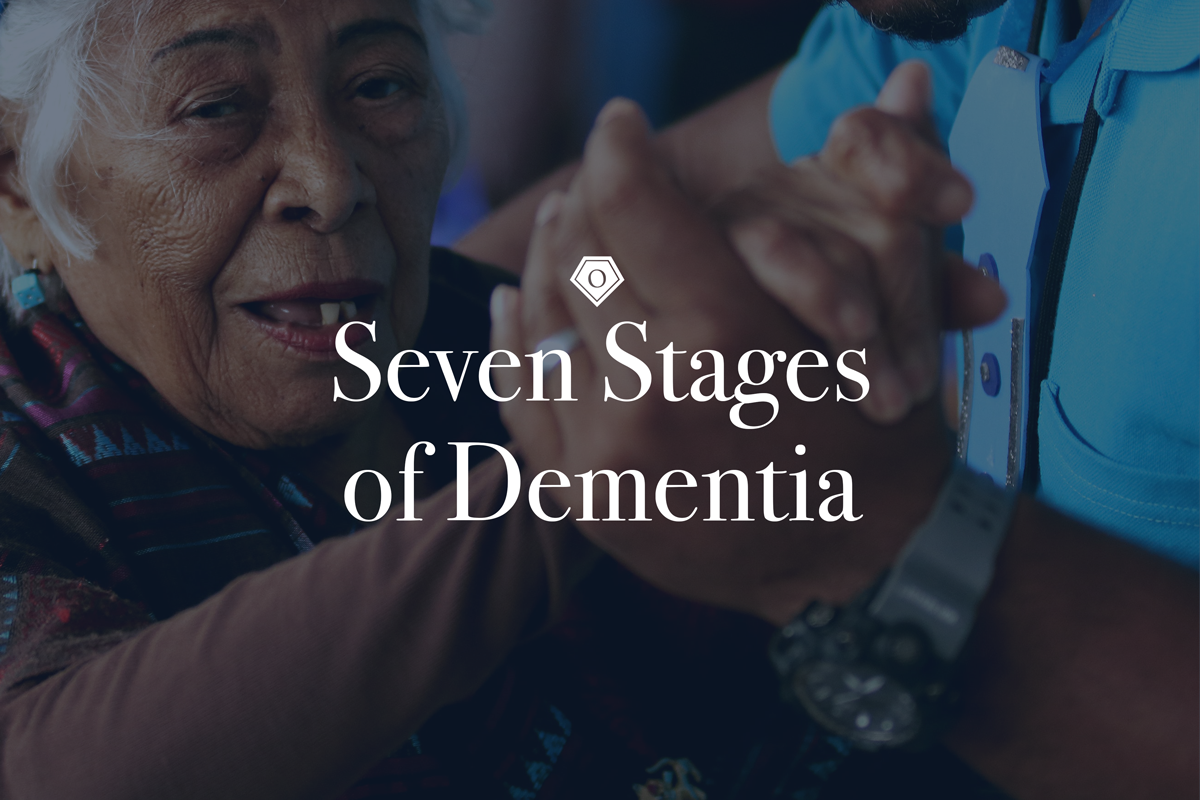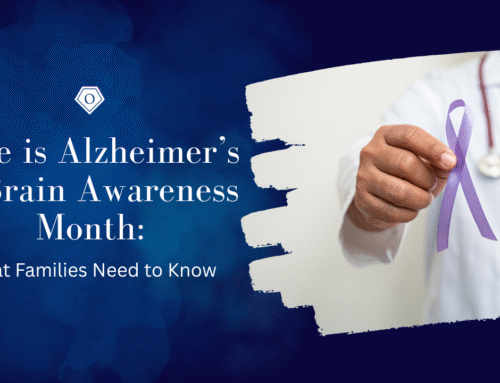Dementia is a general term for a decline in cognitive function that affects memory, problem-solving skills, language, and daily living functions. Specific types of dementias — including Alzheimer’s disease and vascular, Lewy body, and frontotemporal dementia — advance at unique rates and differ from person to person.
The seven stages of dementia are separated into three progressive phases:
- Pre-dementia/early-stage dementia: A person can live independently and may not exhibit noticeable memory loss or have difficulty completing regular tasks. Mild dementia symptoms mimic episodes of age-related forgetfulness.
- Moderate/middle-stage dementia: Moderate dementia symptoms significantly affect a person’s personality and behavior. Someone with middle-stage dementia generally needs full- or part-time caregiver assistance with regular day-to-day activities. Other moderate-stage dementia symptoms include significant cognitive impairment and mood swings.
- Severe/late-stage dementia: The final phase is associated with severe cognitive impairment and a loss of physical abilities. Late-onset dementia symptoms are pronounced memory loss, incontinence, and an inability to move without help.
The seven stages of dementia:
Stage One | Normal Behavior
- Characteristics: Stage one is the absence of symptoms and normal mental functioning. A person in the first three stages of dementia typically doesn’t exhibit enough symptoms even to be diagnosed. Stages one through three are considered pre-dementia stages, despite some symptoms being present.
- What to do: If you know your loved one is genetically disposed to dementia, keep an eye out for warning signs, keep up with regular doctor’s appointments, eat well, and maintain regular physical activity.
Stage Two | Forgetfulness
- Characteristics:
- Losing track of familiar objects
- Inability to recall names of friends, family members, and former acquaintances
- What to do: Since many experience age-related forgetfulness, most people do not recognize this stage of dementia as simple memory mistakes characterize it. The most important thing you can do is check for warning signs, keep up with regular doctor’s appointments, eat well, and maintain regular physical activity.
Stage Three | Mild Decline
- Characteristics:
- Forgetting to go to appointments or events
- Losing things and minor memory loss
- Getting lost while traveling
- Decreased work performance
- Difficulty finding the right words
- Verbal repetition
- Challenges with organization and concentration
- Trouble with complex tasks and problem-solving
- Problems with driving
- What to do: Family members and caregivers start to notice something is wrong in stage three. When signs are more noticeable, it’s time to seek medical advice, even if there is not significant impact on day-to-day functioning.
Stage Four | Moderate Decline
- Characteristics:
- Social withdrawal
- Emotional moodiness
- Lack of responsiveness
- Reduced intellectual sharpness
- Trouble with routine tasks
- Forgetting recent events
- Denial of symptoms
- What to do: People with dementia and Alzheimer’s are typically diagnosed in stage four. People in stage four have clear, visible signs of cognitive impairment and exhibit personality changes. It is essential to get a diagnosis and create a support system.
Stage Five | Moderately Severe Decline
- Characteristics:
- Pronounced memory loss, including personal details and current events
- Wandering
- Confusion and forgetfulness
- Disorientation and sundown syndrome
- Further reduced mental acuity and problem-solving ability
- What to do: At stage five, patients can no longer carry out regular activities of daily living, like dressing or bathing. It may be time for family caregivers to consider light home-health care. When the patient’s needs are too difficult for a caregiver to manage, it’s time for professional help. Home health care allows the patient to remain in the comfort of home while getting the medical care they need and lifting the load for family members.
Stage Six | Severe Decline
-
- Characteristics:
- Sleep difficulties
- Urinary or fecal incontinence
- Aggression and anxiety
- Personality changes, including paranoia or delusions
- Inability to perform ADLs
- Pronounced memory loss
- Inability to recognize loved ones and caregivers
- What to do: Toileting, bathing, eating, and emotional changes create significant battles for family caregivers. At stage six, family caregivers feel the pressure and intensity of care, and a more robust level of home-health care services is necessary for life balance.
Stage Seven | Very Severe Decine
- Characteristics:
- Inability to speak
- Lack of physical coordination and the inability to move without help
- Impaired bodily functions
- What to do: Late-onset dementia disrupts bodily functions like the ability to chew, swallow, and breathe. Patients can no longer care for themselves and lose all verbal ability. Home-health care and even hospice care have become necessary.
Types of Dementia and Life Expectancy:
The average person with dementia lives between four to eight years, though some live up to twenty years with dementia. Alzheimer’s and vascular dementia follow a similar seven-step progression.
- Alzheimer’s disease. The life expectancy range is between eight and ten years.
- Vascular dementia. People with vascular dementia face external risk factors like stroke or heart attack, and the average lifespan is five years.
- Lewy body dementia. A more significant threat of injuries and infections places the life expectancy for dementia with Lewy bodies at around six years.
- Frontotemporal dementia. The expected lifespan ranges from six to eight years.

What Long Term Care is Best | Free Booklet
Choosing long-term care is a burden that often falls on adult children and family caregivers. Our team is here to support you throughout the journey. Download our booklet to explore options for your aging loved one and family.
Are you wondering what type of long-term care is best for you or your loved one? Our free booklet will help you evaluate the differences and costs between home care, nursing homes, and assisted living facilities.
Alzheimer’s and Dementia Home-Health Care
Onyx Home Care’s neurological disorder care is built around a system of support. This service includes skilled home care as well as a unique program that centers on the patient’s interests and stage of illness. Our goal is to see happy family members, patients and caregivers. Often times, caregivers feel remote. Our team includes each person in the home care process to provide inclusive care that helps the patient thrive.






